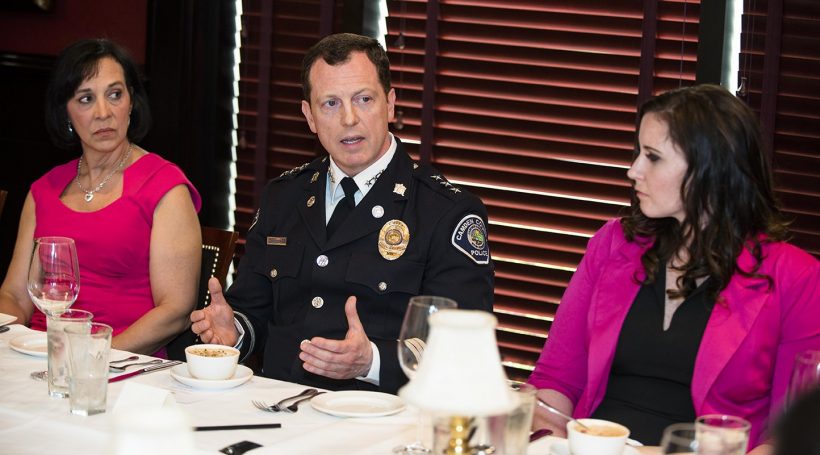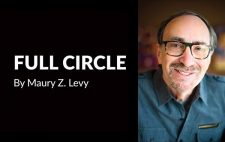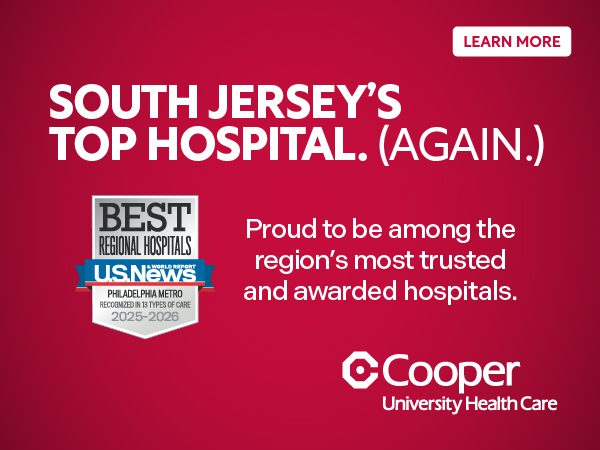Continuing our influential roundtable series on topics important to South Jersey, SJ Magazine’s Marianne Aleardi hosted 13 SJ leaders to discuss the widespread opioid epidemic. Participants shared passionate stories of their first-hand experiences working to combat the growing problem.
Lou Cappelli
Camden County Freeholder Director
Anne Gutos
Co-founder, King’s Crusade
Scott Coffina
Burlington County Prosecutor
Mariel Hufnagel
Executive Director, The Ammon Foundation
Lt. Lou Fisher
Riverside Police Dept./Co-founder, New Jersey Treatment Incentive Program (NJTIP)
Larena Wilde
Director of Outpatient Services, Seabrook
James Baird, DO
Assistant Medical Directorof Emergency Department, Jefferson Health New Jersey
Frank Tarentino
Assistant Special Agentin Charge,DEA-New Jersey Division
Dominic Vesper Jr.
Deputy County Administrator, Camden County
Patty DiRenzo
Recovery Employment Specialist, Camden County Resource Center
Scott Thomson
Chief, Camden County Metro Police Dept.
Stephen Kavalkovich
Recovery Specialist, OAKS Integrated Care
Marla Meyers
Executive Director, Samost Jewish Family & Children’s Service of Southern New Jersey
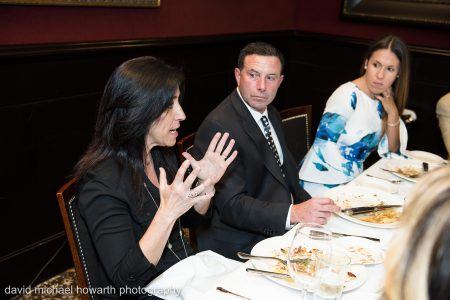 On what people say about addiction…
On what people say about addiction…
I hear this one a lot: “Didn’t they know better?” My message is: Look at me. I knew better. I treated probably 1,000 overdoses in my career as a paramedic. However, when it came down to an opportunity to numb hurtful things in my life, it just became an easy road to go down. If it was as simple as knowing better, we wouldn’t be having this conversation.
Stephen Kavalkovich
The most horrible thing I hear is, “Just let them die.” I tell people this could be their son or daughter, mother or father. I try to explain that every life matters, and we shouldn’t give up on people.
Lou Fisher
I lost my son Sal to an overdose in September of 2010. There are three things people say to me: “Why didn’t he just stop?” “He was selfish,” and “He made a choice.” That hurts, and it infuriates me. Sal did not want to live the life of addiction. He didn’t want to struggle every day, and he didn’t want to leave his little boy behind. Before you pass judgment on anybody, educate yourself. It’s a terrible disease, and people need to show compassion. They see him as weak when they say that to me, and he wasn’t weak. He had a disease, and he was struggling.
Patty DiRenzo
I was out with some friends – well-educated friends – and we were talking about the legalization of marijuana. And one friend said to me, “Well, marijuana is not a gateway drug. Everyone knows that.” I just said, “You need to read the literature, and you need to understand what happens for young people, what the gateways are.” People don’t understand that young people’s brains, which aren’t fully developed, are so susceptible.
Marla Meyers
On the relationship between prescribed medication and heroin…
Four out of five individuals who are overdosing on heroin and fentanyl started on legal prescription drugs. It’s not necessarily an issue of making bad choices or having a bad lifestyle. A lot of these people are becoming addicted under medicine prescribed to them.
Scott Thomson
I work in an emergency room. People break their leg, people have horrible infections, so you have to ask, “Have you ever had a problem with opioids?” “Have you ever had a problem with addiction to alcohol?” At work today, I prescribed opiates to people, but I’m telling them, “Take Motrin, take Tylenol, apply heat, we’re going to splint your leg and we’re going to do all these other things to help your pain. But when you can’t sleep, when the pain is so bad you’re crying and you feel like you’re going to throw up, then you take this pain pill. And when you don’t take them all, take them back to the pharmacy or anywhere else you can take medications.”
James Baird
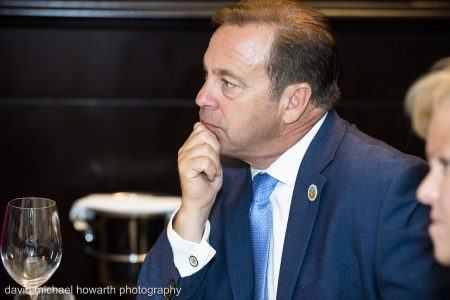 On how severe the problem is…
On how severe the problem is…
What makes this different is that it’s so lethal. There are so many more people dying now than during the crack epidemic in the ’80s. It is wiping out a generation.
Scott Coffina
We’ve had 10 overdoses in 15 days, five fatal in one square mile. I’m about ready to cry. It’s horrible. And it’s only going to get worse.
Lou Fisher
The role of government…
The DEA likes to say we’re not going to arrest our way out of this problem. We realize we have to focus on a holistic approach. We’re trying to teach and educate not just students, but also parents and educators. We also work very closely with police departments, and we want to do the diversion piece with doctors and pharmacists. I had a conversation with my colleague today, and to think that we’re career law enforcement guys and we’re talking about how we can get into the communities and help them solve this problem – that’s progress.
Frank Tarentino
On whether it’s a “Camden problem”…
A lot of times we’ll hear people say it’s a Camden problem. It’s troubling to hear that. At our task force, we actually made our campaign slogan, “What you thought was miles away is in your backyard.” This is a suburban problem.
Dominic Vesper
Close to 80 percent of our fatal overdoses are people from outside of Camden.
Scott Thomson
From Burlington County’s perspective, we don’t consider it a Camden problem, it’s a Burlington County problem. The source is really not the problem, because users can get it in any number of places.
Scott Coffina
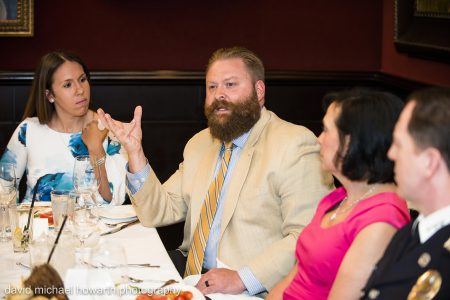
On the stigma…
The lack of compassion is frustrating. Nobody ever said they want to grow up and become addicted to substances. These are people who need help. It’s tough for me to see people writing others off – saying they don’t deserve any type of help and they don’t deserve the community to embrace them and help save them.
Larena Wilde
It’s easier for people to say, “They’re addicts, they’re junkies.” It’s the easy way out for people who don’t want to take the time to understand the cause or depth of this problem. America, many times, is looking for the simplest answer and the simplest explanation to a lot of issues. This is one that’s caught up in that: “It’s simple, they’re addicts.”
Lou Cappelli
On Camden County’s lawsuit against pharmaceutical companies…
The drug manufacturers were aware of the fact that opioids have super-addictive qualities. But when they marketed the opioids, they marketed them as not being addictive, as this new miracle pain killer. That marketing was fraudulent, and as a result, thousands and thousands of people died, families were ruined, and people became addicted. The lawsuit is about trying to recover from those drug companies funds that will help us do everything we’re talking about here today. They helped create the problem – they should be part of the solution.
Lou Cappelli
On available resources…
My mom was diagnosed with breast cancer. The insurance company never challenged her, and she was immediately rushed into treatment. On her last day of treatment, she was given 15 different things to do: bi-annual appointments, mammograms, here’s a local survivor support center that’s free that has yoga, meditation, and wellness and support groups. So this continuum of care included recovery to treat her illness. That is borderline non-existent for individuals who suffer from addiction.
Mariel Hufnagel
I was in the ER today, and one of the patient navigators grabbed me and said, “Hey, we’ve got somebody struggling with crack cocaine and opiates. Can you come talk to them?” Notice the doctor didn’t say that. The charge nurse didn’t say that. It was a patient navigator. It’s a challenge to change a culture in an emergency room that is used to treating and streeting.
Stephen Kavalkovich
If you are revived from an overdose and go back to live on the street or in some rodent-infested home, and you have no education, no health insurance. You have open wounds, and you don’t have any clean clothes. You dropped out of high school. Why would you want to be painfully aware of all of that by being sober? Someone who has suffered from an addiction has to be able to build a life worth living. For that to happen, recovery support services have to enter into the conversation.
Mariel Hufnagel
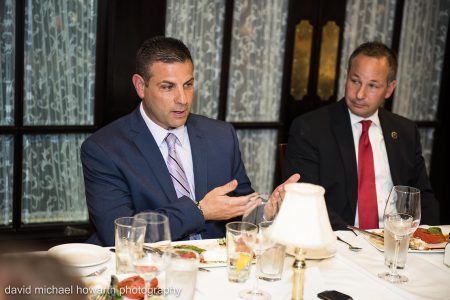 On whether everyone should carry Narcan…
On whether everyone should carry Narcan…
I took a Narcan training course through Camden County, and two weeks later, I was in a truck plowing snow and I saw a guy on the side of the road, and he was overdosing. I didn’t have my Narcan kit. A nurse had pulled over, and I was able to assist. The man lived, thank God, I would have felt so horrible had he died knowing I had just been trained a couple weeks ago. Everybody should carry Narcan, and everybody should be trained. Our government will pay for you to get trained in Camden County.
Dominic Vesper
When you say should everyone carry Narcan, to me that’s the equivalent of saying should everyone use CPR when somebody’s heart stops? It’s a no-brainer. We’re keeping people alive with Narcan, but we’re not saving their life, if you know what I mean. We haven’t fixed that part of this epidemic.
James Baird
My fear of mass deployment of Narcan without proper training is we could see more overdose deaths. Because now the individual who saves Johnny thinks, “I don’t want to call the cops. He’s ok, he’s awake. Why have the lights and the sirens? Why have my neighbors seeing this? So go to bed, Johnny, I’ll see you in the morning.” And you might not see Johnny again, because he’s going to relapse. That Narcan is going to kick off, fentanyl is going to kick in, and he’s going to overdose again. That’s my fear.
Lou Fisher
 At Seabrook, we train our families and hand it to everyone at discharge, so they have the ability to never face being too late or not being able to save a life. If medical science has brought us to this place, we’re keeping them alive.
At Seabrook, we train our families and hand it to everyone at discharge, so they have the ability to never face being too late or not being able to save a life. If medical science has brought us to this place, we’re keeping them alive.
Larena Wilde
On the role of law enforcement…
Law enforcement really has taken a lead in fighting this problem. You have to give them a lot of credit, because when you’re talking about stereotypes, you think law enforcement would say, “Let’s lock them up. They’re criminals.” In Camden County, and in other counties, law enforcement has taken a lead being sympathetic to those who are in crisis, who have a substance abuse problem. They went to the forefront.
Lou Cappelli
This is a public health problem. Handcuffs, courts, jails are not variables in the solution for addiction. Law enforcement plays an important role, because we’re first on the scene. It’s important for first responders to have equipment, such as Narcan, to be able to save any life, whether it’s the first time of the day, the second time or the fifth time. It’s not our job to determine whose life has what value.
Scott Thomson
We’ve been very aggressive using the drug-induced death homicide statute to prosecute the person who deals a victim a fatal dose. These dealers are amateur chemists right now. The precision they need to make fentanyl safe is something they don’t spend any time worrying about. It’s sometimes controversial, and we get blowback when people say it was the victim who did it to themselves. Well, that’s a life that would have been around but for the fact they got something that was incredibly lethal.
Scott Coffina
The stress on that police officer who has to go in that house, knowing somebody is potentially dying and now they have to save their life. If I could bring videos over from our body cams – it’s horrifying. In the past, a police officer might save a life maybe once a year, maybe once in five years, maybe once in a career. My officers are going through it multiple times in a week.
Lou Fisher
A lot of segments of society will look at law enforcement and say, “Why don’t you just lock them up? They’re trying to buy drugs, put them in jail.” I can tell you that is failed policy. It’s the epitome of the definition of insanity – doing the same thing over and over, and expecting a different result.
Scott Thomson
When I became prosecutor, I expected most of what we would be doing is prosecuting people. Little did I know that supporting and conceiving of treatment programs and opportunities would be such a big part of it. And it is. Every police car in Burlington County has Narcan, and they all have cards that identify treatment resources to people who they see struggling. We just started Straight to Treatment in Evesham, which allows people to walk into the police department and turn in any drugs without consequences.
Scott Coffina
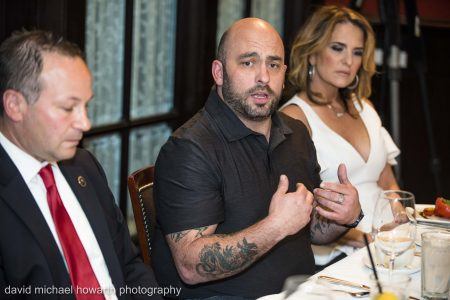
On advice for families of people struggling with addiction…
My father and my mother had been playing this dance with me for 10 years. They were paying my fines, hiring my lawyers, paying my car insurance, taking care of my kids, all that stuff. Rehab after rehab, this bill, that bill, the whole deal. And finally, after my last overdose, my parents started going to places like Co-Dependents Anonymous and going to individual therapy. They said, “You can’t stay with us anymore. We love you, but we’re not going to love you to death.” And something changed in me. I always tell family members, if you want to see something happen, the best chance you have is for you to do something different.
Stephen Kavalkovich
Addicts lose everything many times, and they go back to square one. It’s hard to dig yourself out if you don’t have the resources. That’s where my passion comes from. We’re trying to educate many people, so if everyone looks at this as a human issue, then everyone can insert themselves where they can help. Because there isn’t just one point of entry to help, there are a million points of entry. I wish my brother was here now, because I think there’s a lot more help now than there was back then.
Anne Gutos
MENU
Soup or Salad Choice
Tomato, Basil & Burrata Salad or Lobster Bisque
Entrée Choice
Seared Salmon Oscar Style or Seared Tenderloin
Accompaniments
Au Gratin Potatoes and Asparagus
Dessert
Flourless Chocolate Espresso Cake or Classic Crème Brulee


